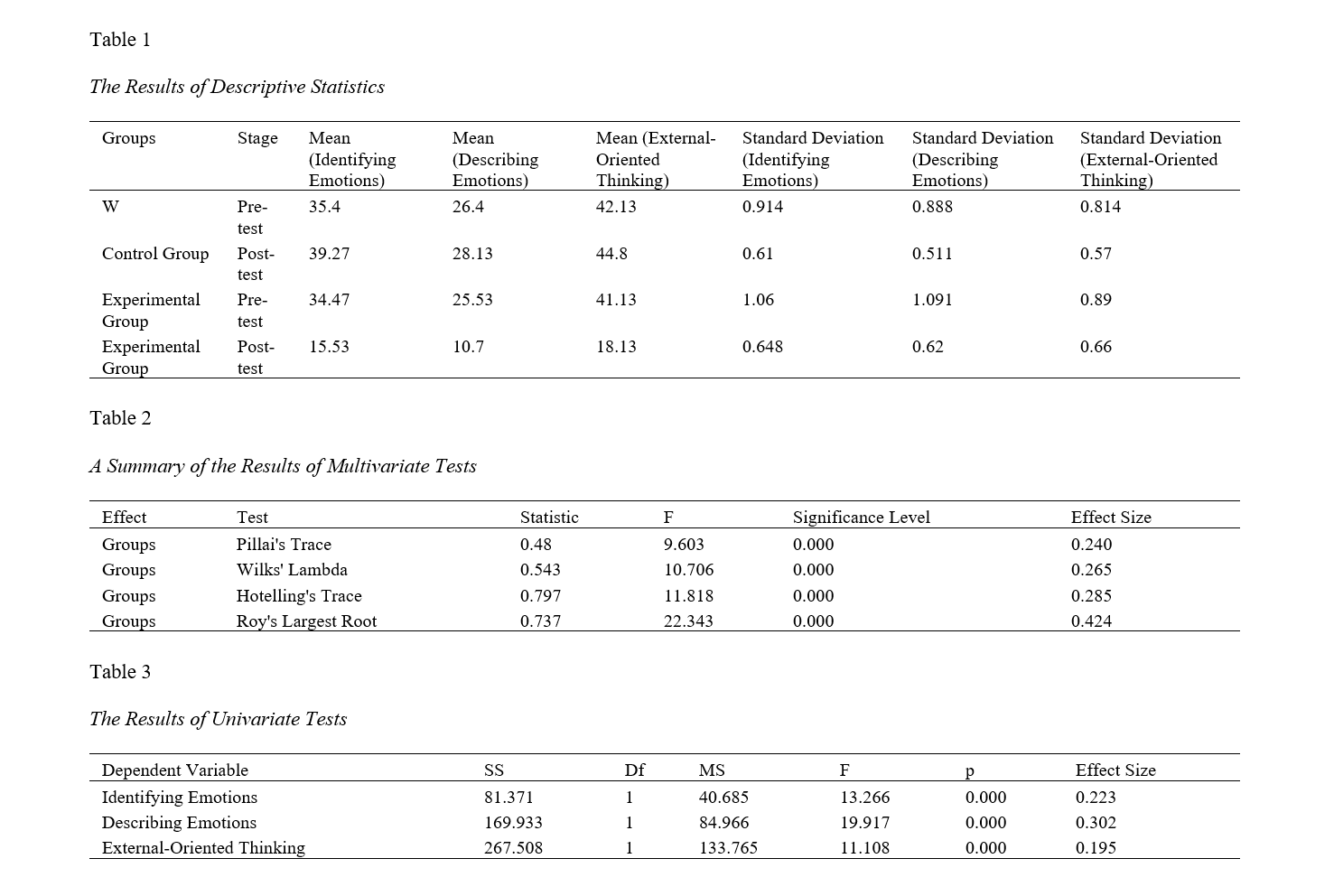Examining the Effectiveness of Emotional Intelligence Training on Alexithymia Components in Students
Abstract
Objective: Emotional intelligence is the most crucial factor in decision-making and the selection of future goals, as well as the substitution of goals in various situations and circumstances. The purpose of this article was to determine the effectiveness of emotional intelligence training on alexithymia components in students.
Methods and Materials: This study was applied, quantitative, and of a quasi-experimental pre-test - post-test design with a control group and training. The population consisted of 30 students suffering from alexithymia, selected from 5 treatment centers, with 15 students allocated to the control group and 15 to the training group. The data collection tool in this research was the Toronto Alexithymia Scale (TAS-20), and Goleman's (1996) emotional intelligence training protocol was used for the experimental group. Data were analyzed using SPSS software and multivariate analysis of covariance method.
Findings: The F-value in the univariate analysis of covariance for the subscale of identifying emotions (F=13.266, P=0.000), for the subscale of describing emotions (F=19.917, P=0.000), and for the subscale of external-oriented thinking (F=11.108, P=0.000) were significant. These findings indicate that there is a significant difference between the emotional intelligence training group and the control group in the dependent variables (alexithymia components).
Conclusion: It can be concluded that the use of emotional intelligence training is beneficial for improving alexithymia in students with learning disabilities.
Downloads

Downloads
Additional Files
Published
Submitted
Revised
Accepted
Issue
Section
License

This work is licensed under a Creative Commons Attribution-NonCommercial 4.0 International License.








